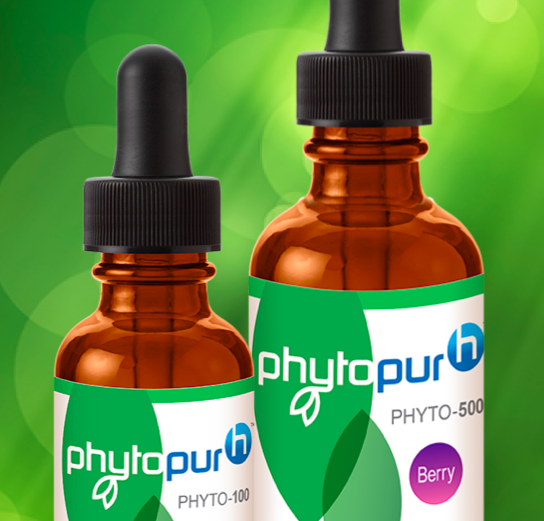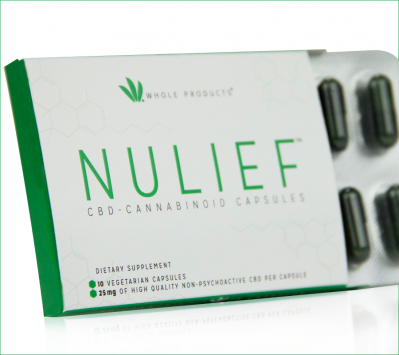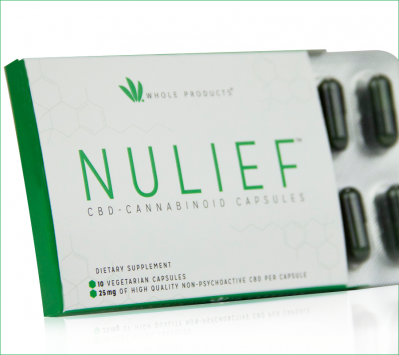Developer of phytocannabinoid product takes food path to sidestep regulatory uncertainty on CBDs

Brazos Minshew, chief science officer for the Scottsdale, AZ-based company, said the unsettled situation concerning the sector induced the company to position its products as foods when they come on the market in a few weeks. But, he said, he believes the situation will become clearer as time goes by.
Regulatory clarity in the offing
“We are marketing it as a food, as a pure hemp product that contains other ingredients like cocoa, hops and turmeric. We are first and foremost positioning it as a food because that’s what’s available to us under the rules in all the 50 states. FDA has said that hemp can be used as a food,” Minshew told NutraIngredients-USA.
“In the short term I believe we will gain some regulatory clarity. I believe it will happen in as little as six months,” he said. “We did get some good movement on hemp in the most recent farm bill, that will help get us off the drug radar and into the nutrition radar.”
Minshew, who has more than 20 years in dietary supplement product development with a number of companies, said the idea behind the Phytopurh product line of liquid products was an attempt to put into one bottle the most potent influencers of the body’s endocannabinoid system. This metabolic pathway has been identified by researchers as a powerful component of the body’s homeostasis system and also plays a role in immune function. It is influenced most powerfully by tetrahydrocannabinol, or THC, the narcotic fraction of cannabis. But there are a number of others, both CBDs (cannabidiol) from hemp/cannabis, and molecules from other plant sources, he said.
“Echinacea, for instance, has phytocannabinoids that affect immune function. The phytocannabinoids in turmeric can basically stop inflammation at its source,” Minshew said.
White hat players
Minshew said the current unsettled climate about CBDs has also complicated the company’s supply picture. He believes the federal government’s squeamishness about the trade has to do with the number of shady characters who have drifted into it from the drug side of the coin.
“I think they have hit the reset button on CBD production, when they cock off supply or crack down on claims. I think basically they are cleaning up the industry from all the bad actors within the industry. We want to have only white hat players on our team. There are people who claim to have a purified CBD product and when the FDA tested it, there is no CBD in there. Or they are saying things like, take our CBD and cure your brain tumor. Those are black hat players,” Minshew said.
Minshew, it must be said, has had experience in being on the receiving end in an FDA claims crackdown. A permanent injunction was issued against one of his former employers, Trivita, for making illegal disease claims on a product based on cactus juice. Minshew said his name appears on the injunction document as having been a company spokesman, but he said he realized the company would get into regulatory difficulty with some of the claims it planned to make and when management decided to go ahead despite his warnings he resigned two years before the injunction was issued in 2014.
Limited claims on foods
The downside of marketing the products as foods to start with is the extremely limited palette of claims that can be made on them. In concord with that, Minshew said the CBD content of the product will not be spelled out on the label. Minshew said if and when a dietary supplement that contains CBD becomes a regulatory possibility, the company would consider positioning the products as stress relievers or adaptogens.
The hemp supply picture at the moment is muddy, too, Minshew said. The company has secured contracts from hemp growers in Colorado, Washington state and Kentucky, as well as in Europe. But all of them are operating at small scales at the moment.
“We have supply from 60 or 70 small acreage plots,” Minshew said. “The fields range from 5 to 20 acres. I have walked these fields to make sure that we are getting what what we contracted for.”
















